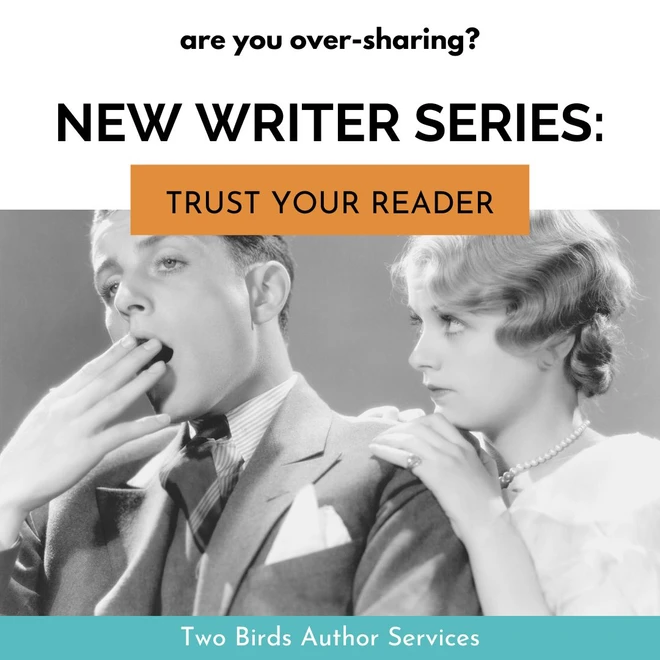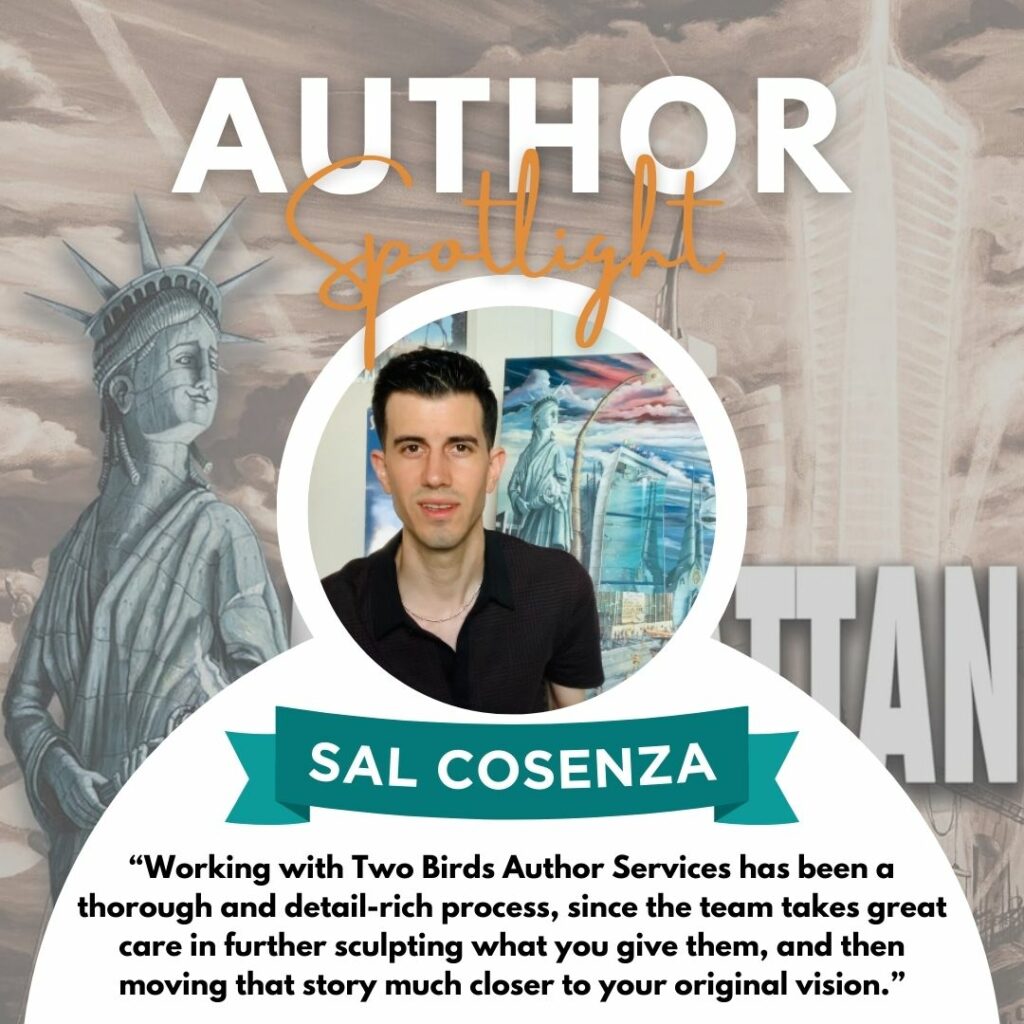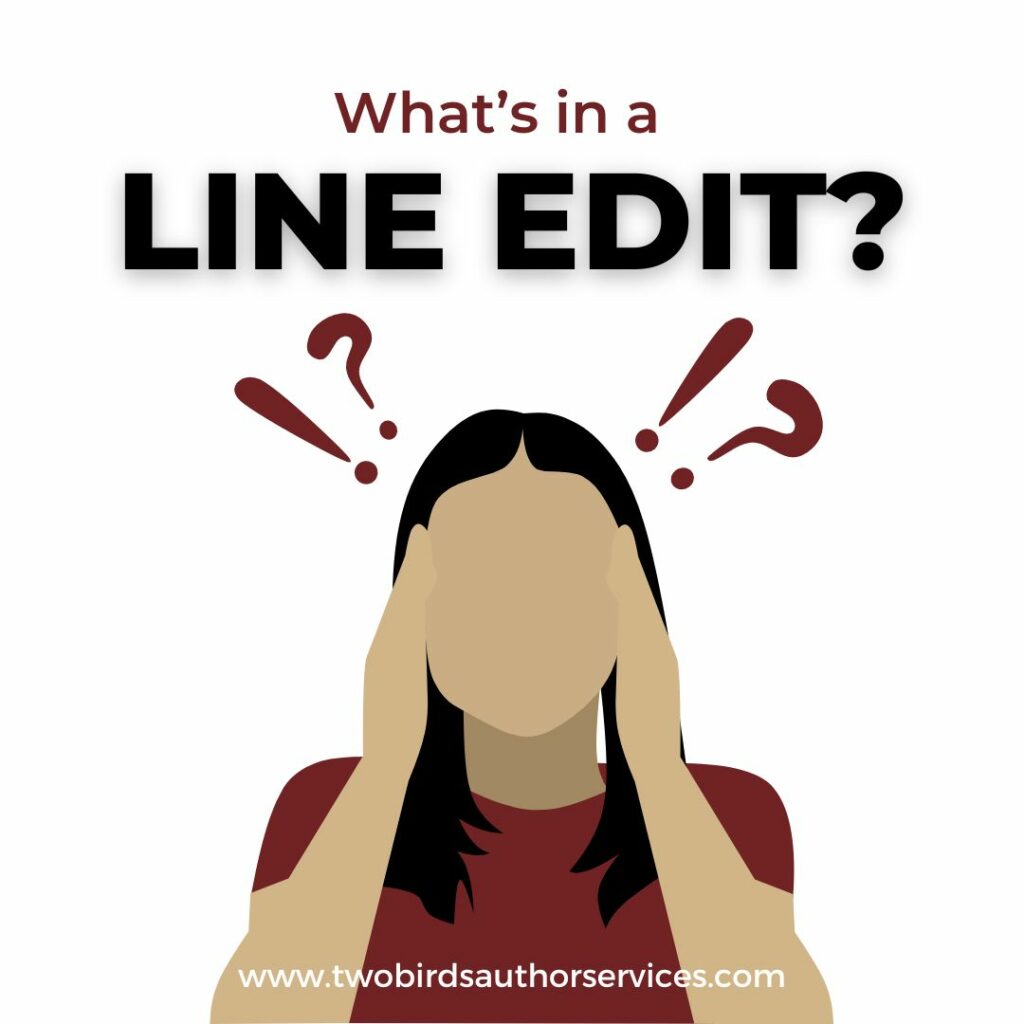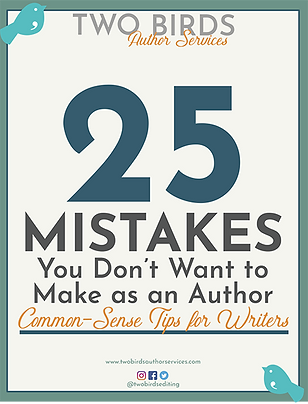THEY ARE SMART COOKIES

Welcome to our New Writer Series! One of the first tenets of novel writing is Thou shalt not info-dump. Especially at the beginning of your book! It’s so tempting to want to fill your reader in with everything they need to know, right up front. For example, let’s say your main character had a bad experience with Twix bars when she was three and never got over it, and you want your reader to know this event colors everything she does.
n
While we appreciate your concern for letting us know, there is such a thing as telling us too much at the very beginning. There’s no point in starting your story before your story starts, right?
n
n
Refraining from ye olde info-dump and instead learning to weave important information into your story as you go is advice that’s as old as the hills. But there is another type of info-dump that can occur … throughout your book. Let’s call this version over-sharing.
n
n
New writer conundrum: What is over-sharing?
n
Let’s say you’re a new writer, working on you first book. As a new writer, you’re excited to share your story and super-motivated to tell us all the things. Maybe your main character has a dilemma, and you want to tell us all about it. The pros, the cons, the good, bad, and ugly about the decision your character has to make. Perhaps it takes a few chapters (or the whole book) for the character to make her big decision. It’s natural for you to want to show us the character is struggling.
n
And we applaud you for this!
n
But it’s easy to forget, in all your new-writer euphoria, that your reader is smarter than you think.
n
n
Let’s stop for a moment to consider what happens when we read a novel. Isn’t it fun when you discover things about the characters by reading between the lines, so to speak? We create meaning for why people do what they do and say what they say. It’s fun to be led to those conclusions, without being explicitly told about them. We feel accomplished, we feel that we understand and empathize with the character. We are invested in the story.
n
n
But as a new writer, it’s tempting to spell everything out for the reader, and not leave anything for them to figure out on their own. You may feel you need to do all the heavy lifting and explain so much that you leave nothing for your reader to discover on their own.
n
n
Foreshadowing as a cure for over-sharing
n
Sometimes, as you’re drafting your book, you’ll add explanations into the draft because you are thinking through the story as you write. It’s like putting your planning and plot and character development notes on paper. This is fine for an early draft because you’re developing your ideas, but you need to do a revision pass to edit those things out later, so they don’t feel like info-dumping or over-sharing.
n
Look for telling the emotions and then showing them, or showing them and then telling, because that happens a lot. Also, if you have to explain something for readers to get it, then that means you’ve failed to make the plot events or character motivations clear enough—so you need to go back to previous scenes and drop in foreshadowing. This is key! Foreshadowing is the solution for over-sharing. Dropping hints and breadcrumbs will allow the reader to ponder and guess and then feel either satisfied when proven right about their suppositions—or pleasantly surprised when proven wrong. As long as the hints were there, readers can feel good about the process of discovering the story as it happens.
n
n
n
Over-sharers anonymous: Accepting help
n
How can you tell if you’ve told your reader too much (or maybe you’ve inadvertently done the opposite, and not told them enough? That’s a thing too!). One thing you could do is run your draft past a trusted beta reader or two. Perhaps find someone who isn’t familiar with your story, so they can “go in cold” and see how it reads. If they get stuck anywhere, you may not have shared enough. If they fall out of the story someplace else, you might be over-sharing.
n
Another solution is to consider a developmental edit or manuscript critique – let an experienced editor read through your story and offer thoughts on how to create an even pace and a story that keeps your readers engaged yet wanting more.
nnn
Have questions about the editing process? We’d love to chat with you and help you figure out your next steps. ,Contact us to set up a free sample edit.
nn
Sign up to receive our monthly newsletter, full of more helpful info and special deals!
n




